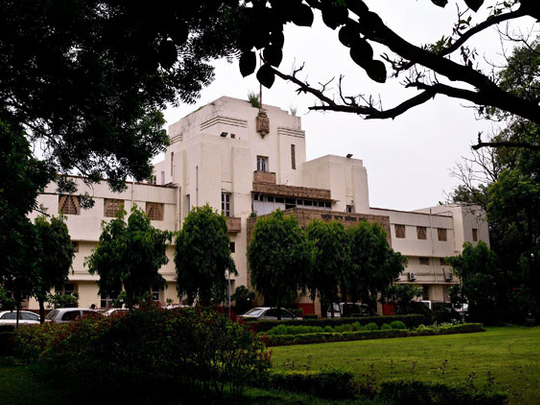
Chandigarh: It is a royal bonanza for two daughters of a former maharaja, one they had to wait for over two decades.
A court here has declared a 32-year-old will “forged” and illegal” and granted inheritance of properties and assets worth a whopping Rs260 billion (Dh16 billion) to the two daughters of the erstwhile Maharaja of Faridkot, Harinder Singh Brar.
The properties and assets include the palatial Faridkot House on New Delhi’s Copernicus Marg, a royal palace complex and a fort in Faridkot, a fort in Mani Majra area of Chandigarh, vintage cars (including a Rolls Royce), an aerodrome in Faridkot spread over 200 acres, properties in Hyderabad and Delhi, gold and jewellery worth nearly Rs10 billion with Standard Chartered Bank in Mumbai and more.
Real estate experts and accountants put the total worth of the properties and assets at over Rs260 billion. The Mani Majra fort, which is over 350 years old, is not in very good condition. The erstwhile ruler was allowed to keep these properties after the country’s independence in August 1947.
The legal battle for the assets started in 1992 after the ex-maharaja’s daughter Amrit Kaur filed a case in a court here. Following a 21-year-old legal battle, the court of the chief judicial magistrate Rajnish Kumar, ordered on Thursday that the 1981 will, purportedly drawn up by the maharaja, was “forged and fabricated”.
With the court judgment, Amrit Kaur and her Kolkata-based sister Deepinder Kaur will inherit the properties and assets of the erstwhile ruler. Their third sister, Maheepinder Kaur, who was not married, died under mysterious circumstances in Shimla in 2001.
Brar had three daughters and a son, Harmohinder Singh, who died in a road accident in 1981. Following this, Brar went into a depression.
In her suit, Amrit Kaur, who lives in Sector 10 here, alleged that the will was forged by officials and servants of the ex-ruler at a time when he was depressed. The will, which gave all his properties and assets to the Meharwal Khewaji Trust, was registered in 1982. The trust had some of his servants on board, while his two daughters were appointed chairperson and vice-chairperson for a mere Rs1,200 and Rs1,000 per month.
Following the death of the erstwhile ruler in 1989, the trustees took control of all the properties and assets.
Amrit Kaur challenged the will, saying that the trust members had forced her father to sign it at a time when he was depressed. She had claimed that he was not in a “fit state of mind” when the will was drawn up. She pointed out that the will had completely excluded his wife, Narinder Kaur, and mother, Mohinder Kaur, who were alive in 1981-82.
Following the court order declaring the will “illegal and void”, the trustees are likely to appeal to a higher court.












